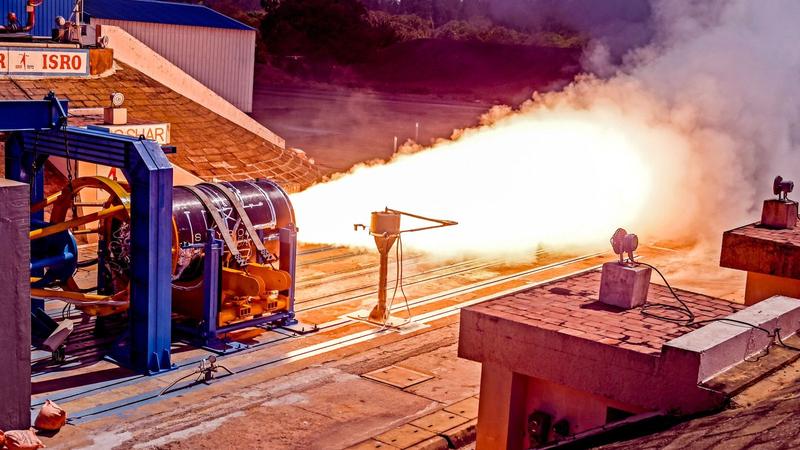Published 16:34 IST, March 28th 2024
Skyroot Aerospace Successfully Test Fires Stage-2 of Vikram-1 Orbital Rocket
In a major development, Skyroot Aerospace, India's leading space-tech company, has successfully test-fired the Stage-2 of Vikram-1 space launch vehicle.

In a major development, Skyroot Aerospace, India's leading space-tech company, has successfully test-fired the Stage-2 of Vikram-1 space launch vehicle, called Kalam-250, at the propulsion testbed of the Indian Space Research Organisation (ISRO), at its Satish Dhawan Space Centre (SDSC) in Sriharikota on March 27.
The launch of Vikram-1 was a landmark event for the Indian space sector as its first private orbital rocket launch, and follows the remarkable suborbital space launch of India’s first private rocket- the Vikram-S by Skyroot in November 2022.
The test, which lasted 85 seconds recorded a peak sea-level thrust of 186 kilonewtons (kN). It will translate to a fully expanded vacuum thrust of around 235kN in flight.
The Kalam-250 is a high-strength carbon composite rocket motor, which uses solid fuel and a high-performance Ethylene-Propylene-Diene terpolymers (EPDM) thermal protection system (TPS).
The stage houses a carbon ablative flex nozzle along with high-precision electro-mechanical actuators for thrust vector control of the vehicle, which helps the rocket achieve the desired trajectory.
Skyroot had previously tested Kalam-100, the third stage of Vikram-1, which was test-fired successfully in June 2021. Stage-2 is a critical stage in the ascent of the launch vehicle, as it propels it from atmospheric phase to the deep vacuum of outer-space.
Naga Bharath Daka, Co-Founder and COO, Skyroot, said “ In this landmark test, we validated the critical system for the launch—the flex nozzle control system—during firing for the first time, making this an important milestone in our journey. We have a few more milestones to cross and are focused on achieving them in the coming months to reach our maiden orbital launch of the Vikram-1 in 2024. We have been steadily progressing on our milestones due the perseverance and dedication of our incredible team, and the excellent support from IN-SPACe and ISRO. ”
Updated 16:34 IST, March 28th 2024



